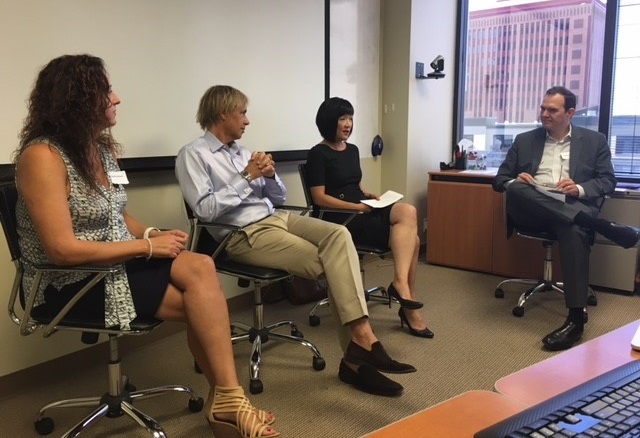Corporate social responsiblity isn't just a nice thing to do. It's also good business.
While the Northwest, home to major corporate philanthropists like Microsoft and a hotbed of social enterprise, may be ahead of the curve on this philosophy, board members and shareholders often require more convincing. Seeking clarity and inspiration from data and examples, two dozen corporate philanthropists joined Philanthropy Northwest and ACCP on June 6 for a half-day workshop on The ROI for CSR.
Steve Rochlin, co-author of Project ROI, presented four elements to a good corporate social responsibility strategy: fit, commit, manage and connect. When done well, CSR creates value for companies through increased brand and employee loyalty, he contends. In one example, CVS gave up $2 billion in sales when the pharmacy chain opted to stop selling tobacco products, but then its operating profit increased by 4.3% and share price increased by more than 27% — adding $25 billion to its market capitalization.
Project ROI has measured nine benefits from CSR investments, including:
- Market Value: 4-6% increase
- Sales: 20% increase
- Price Premium: 20% increase
- Staff Turnover: 50% decrease
- Productivity: 13% increase
- Employee Engagement: 7.5% increase
A panel of Northwest CSR executives from Insitu, Starbucks and Wells Fargo shared their own strategies, describing how they balance the needs of their communities, customers, employees and companies.
"If our missions are not tied to business strategies somehow, providing business value of some sort, then it's really not sustainable," said Jackie Liao, Starbucks director of community investments.

As the workshop concluded, Katy Taylor, Alaska Airlines director of employee engagement, said she looked forward to applying what she had learned, particularly as it relates to impact measurement, metrics and employee satisfaction.
"We want to look at the correlation between employee volunteerism and their pride in the company," she said. "We have the data to tell a story about which employees are most engaged."
Afterward, Maryann Fiala of ACCP asked Rochlin for some final thoughts on the workshop, including what strikes him about corporate philanthropy in the Northwest:
Together with ACCP and our corporate members, Philanthropy Northwest offers a range of corporate philanthropy events and opportunities to engage this year. Sign up for our Corporate E-Bulletin and reach out to us if you have feedback or session proposals.